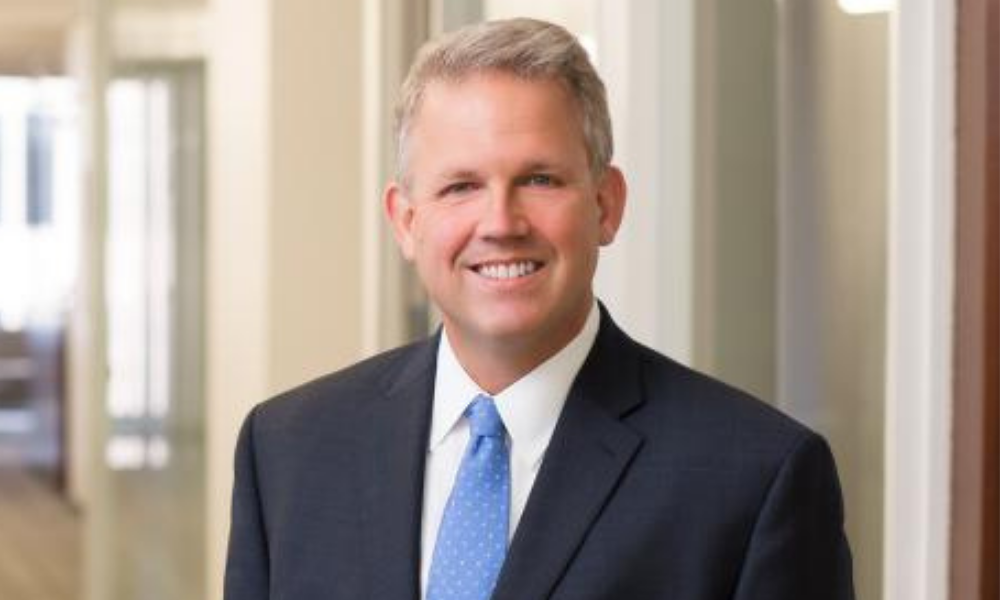
Despite the Supreme Court's ruling, private employers can still require employees to be vaccinated

More than 80 million Americans were able to breathe a sigh of relief last week, as the Supreme Court blocked President Joe Biden’s vaccine mandate for private employers.
However, the decision came three days after the Occupational Safety and Health Administration’s (OSHA) emergency measure went into effect. In order to comply, many companies with 100 or more employees had already asked workers if they were vaccinated and if not, gave them a deadline to do so.
If employees who refused were terminated, they’re out of luck despite the Supreme Court’s decision, according to Bob Nichols, a partner at international law firm Bracewell LLP. For more than 30 years, Nichols has represented employers in matters pending with government agencies, including OSHA.
“Employees who previously lost their jobs or were denied jobs because of mandates that employers decided to impose generally have no recourse,” Nichols told HRD. “The OSHA-required testing was not going to go into effect until Feb. 9, so it didn’t impact anyone. All that really went into effect of substance was this week unvaccinated employees were supposed to be wearing masks.”
Regardless of the Supreme Court decision, private employers of any size have the right to require employees to be fully vaccinated, while allowing medical and religious exemptions. Meanwhile, Nichols stresses that there will still be underlying litigation over the federal mandate, but that based on the ruling, opponents of the mandate are expected to prevail in litigation.
Read more: Supreme Court blocks Biden vaccine mandate for private employers
“Employers still need to be concerned about COVID-19,” Nichols says. “They need to adopt appropriate measures to protect their workers and those who enter their businesses. They should still be concerned about infected employees isolating, exposed employees quarantining and doing all the good and safe things that responsible employers should.”
After all, OSHA will continue to issue guidance and citations for employers who fail to implement health and safety measures related to COVID-19, aside from vaccination, testing or masking policies. For example, OSHA already requires employers to maintain proper cleaning procedures and follow isolation and quarantine guidelines. OSHA estimated that the emergency temporary standard (ETS) could’ve saved more than 6,500 lives and prevented over 250,000 hospitalizations in the six months that it would’ve been in effect.
In an unsigned opinion, the justices wrote, “OSHA has never before imposed such a mandate. Nor has Congress. Indeed, although Congress has enacted significant legislation addressing the COVID–19 pandemic, it has declined to enact any measure similar to what OSHA has promulgated here.”
In a joint dissent, Justices Stephen Breyer, Elena Kagan and Sonia Sotomayor wrote, “Acting outside of its competence and without legal basis, the Court displaces the judgments of the government officials given the responsibility to respond to workplace health emergencies.”
It’s also important to remember that the Supreme Court did rule in favor of Biden’s vaccine mandate for health care workers at facilities receiving Medicare and Medicaid funding. The mandate affects more than 17 million workers in approximately 76,000 health care facilities, as well as government-funded home health care workers across the country.
“The challenges posed by a global pandemic do not allow a federal agency to exercise power that Congress has not conferred upon it. At the same time, such unprecedented circumstances provide no grounds for limiting the exercise of authorities the agency has long been recognized to have,” the justices wrote in an unsigned opinion, saying the “latter principle governs” in the health care cases.
After Biden announced the mandates in September, more than two dozen states filed lawsuits, arguing that the requirements were unconstitutional. In December, the United States Court of Appeals for the Sixth Circuit in Cincinnati ruled in favor of Biden’s vaccine mandate for private businesses. Lifting the Fifth Circuit’s injunction from November, the 6th Circuit allowed OSHA to implement and enforce the mandate.
Just hours after the ruling, several petitions were filed to the Supreme Court to block the mandate. History indicated the high court would rule in favor of the Biden administration, considering that last month, the Court refused to block a New York regulation mandating COVID-19 vaccinations for health care workers. In August, Supreme Court Justice Amy Coney Barrett refused to block a plan by Indiana University to require students and employees to get vaccinated against COVID-19.
“The Supreme Court’s decision on the ETS comes as a massive sigh of relief for businesses already saddled with the difficult task of addressing COVID-19 risks in the workplace,” said Jackie Gessner, labor and employment attorney at Indianapolis-based Barnes & Thornburg LLP.
“Businesses were struggling with how to handle large numbers of exemption requests and the seemingly impossible task of administering weekly tests, especially given the test supply shortage,” Gessner said. “This decision returns the decision-making power to individual businesses, often more equipped to identify the best safety solutions for their workforce.”